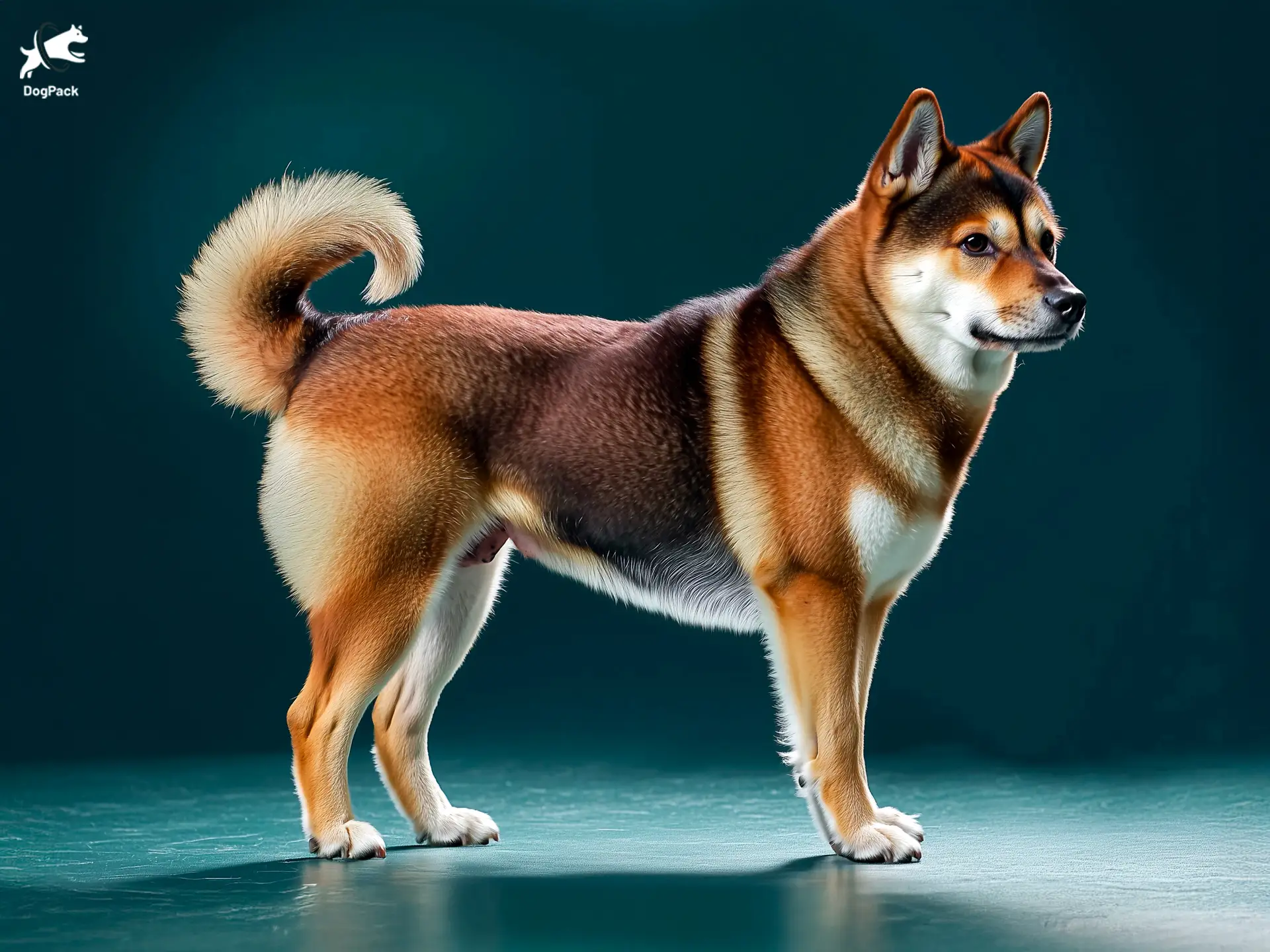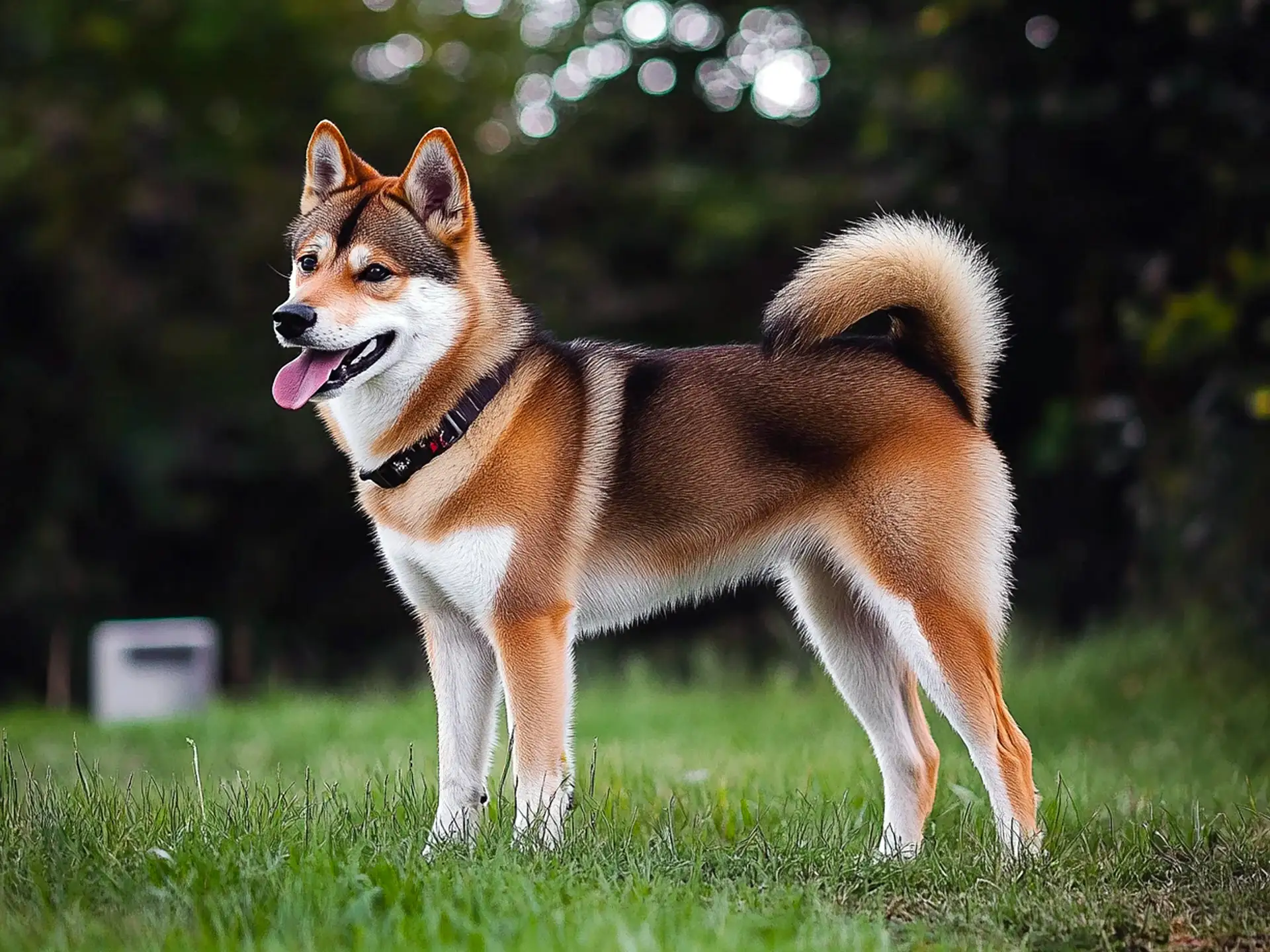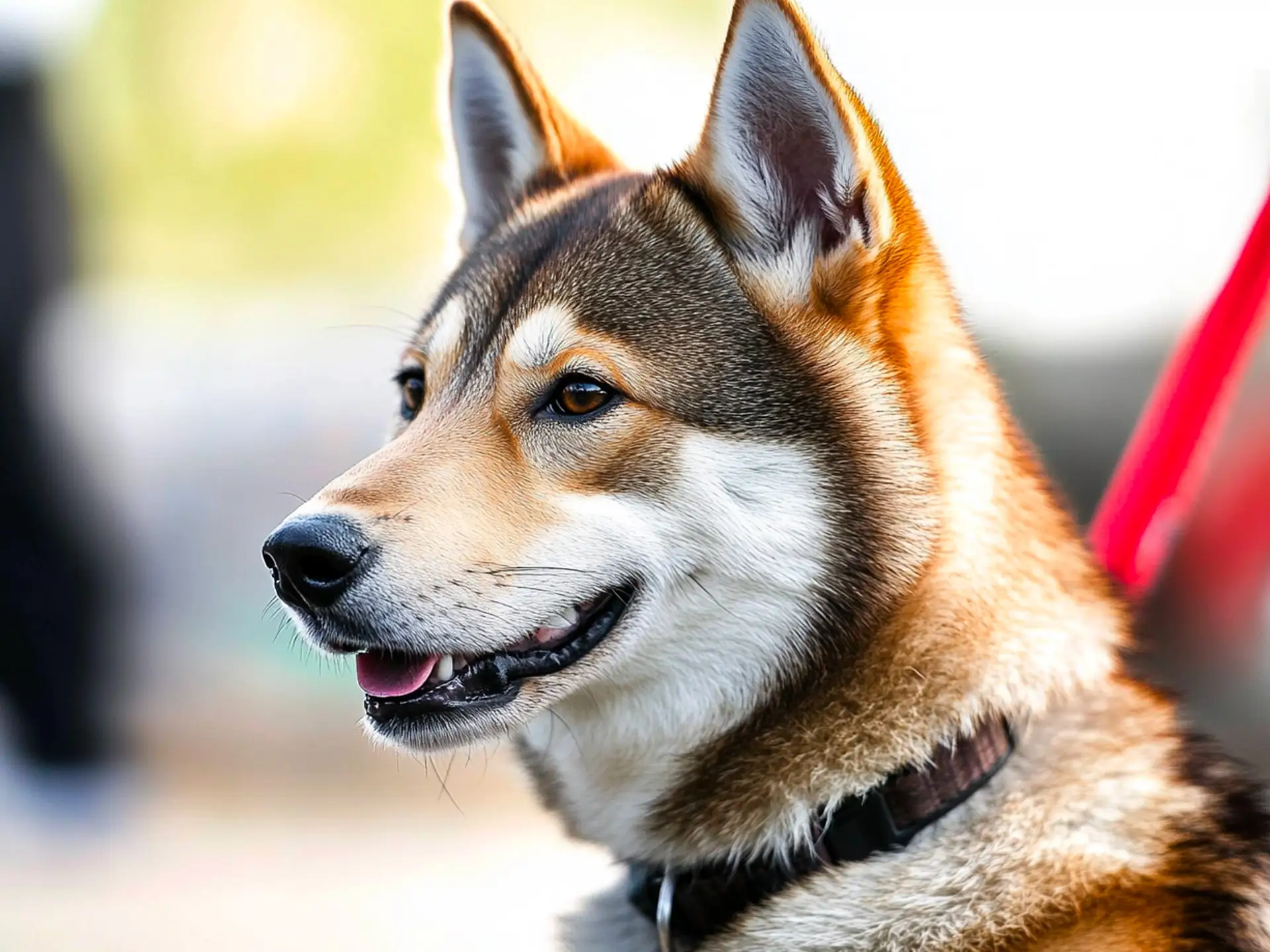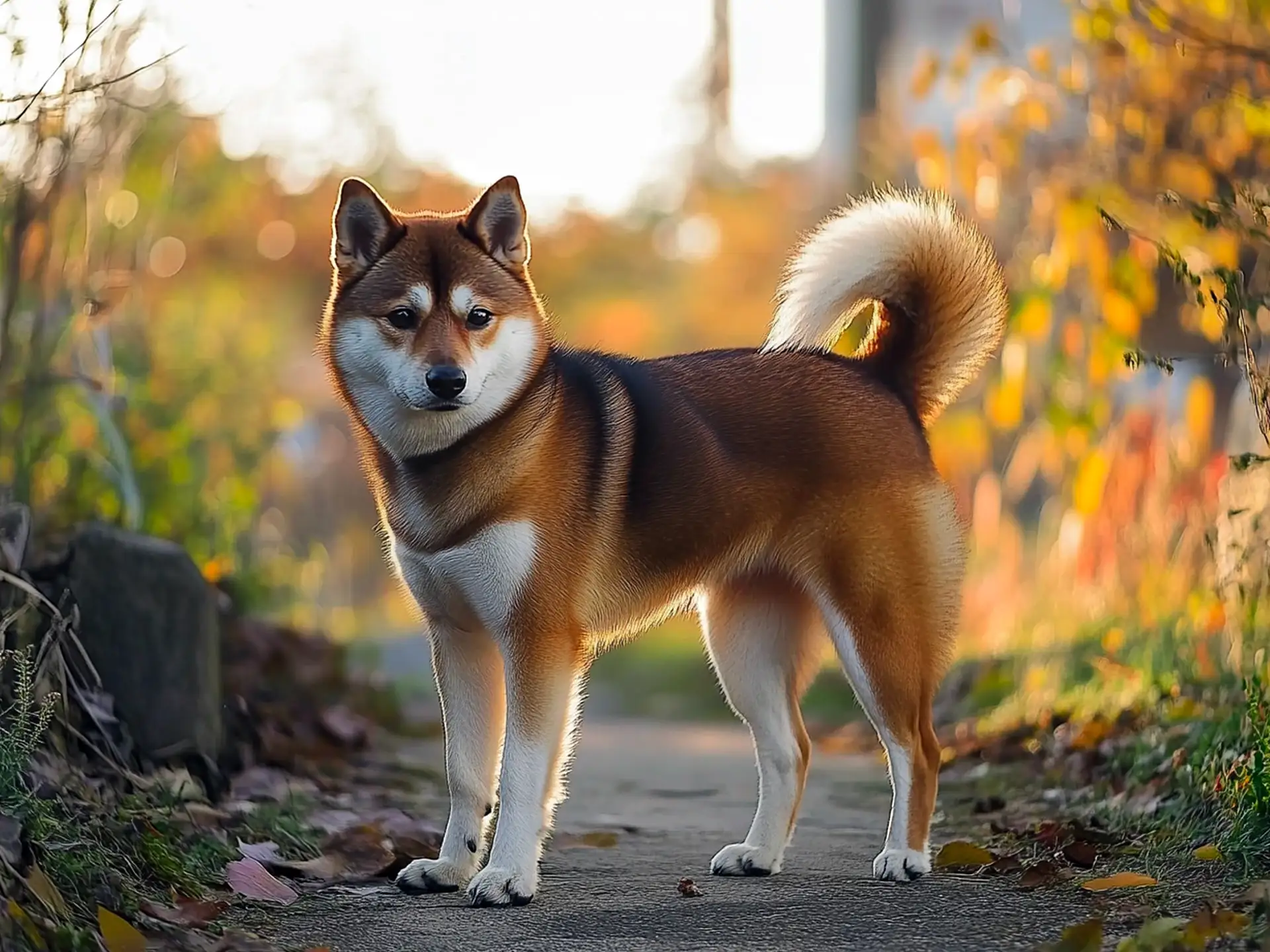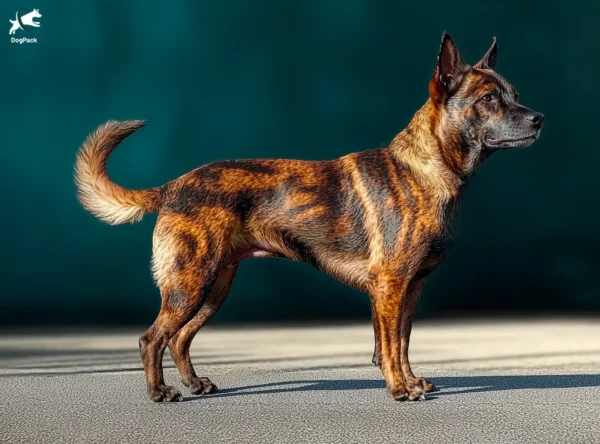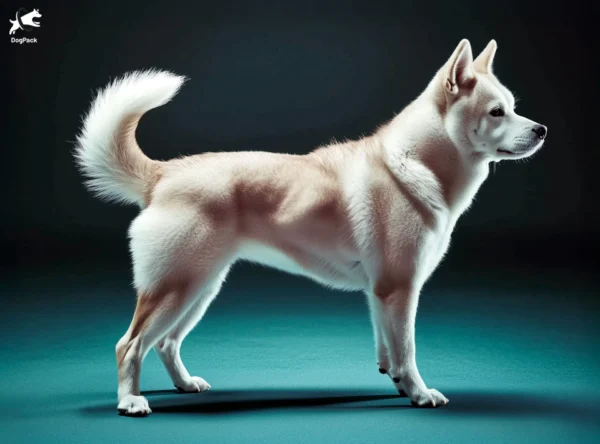Shikoku Dog Breed Info & Overview
The Shikoku is a spirited medium-sized dog hailing from Japan’s mountainous terrain. Renowned for loyalty, agility, and a distinct double coat in sesame variations, it’s an ideal companion for active households. A keen hunter at heart, it thrives when given mental stimulation and plenty of outdoor adventures—reflecting its strong heritage as one of Japan’s treasured canine wonders.
Characteristics
Pictures
Breed History
Tracing its lineage back to ancient times, the Shikoku developed in Japan’s Kochi Prefecture as a hardy hunting companion. Originally bred to track wild boar, it became revered for its courage and tenacity in treacherous mountainous landscapes. Local hunters prized its keen sense of smell and stealthy approach, passing down these traits through generations of carefully selected breeding.
Over time, dedicated enthusiasts worked to preserve this unique canine’s pure lineage and exceptional working prowess. One anecdote recounts a legendary Shikoku that navigated dense forests with such skill, it became a celebrated topic among local hunters. Although relatively unknown outside its homeland for many years, the breed steadily gained attention among international dog lovers seeking a rare gem.
Even today, these dogs remain closely tied to their rugged roots. The name reflects their geographic origin in the Shikoku region, highlighting the breed’s deep connection to this island’s challenging terrain. Carefully maintained bloodlines continue to protect the dog’s essential qualities: strength, agility, and devotion. Respecting this storied past helps ensure that each Shikoku remains a living emblem of Japan’s rich canine heritage.
Temperament, Personality
Boldness runs in this dog’s veins, yet beneath that self-assured demeanor lies a strongly devoted companion. Early socialization is crucial, as this intelligent canine can be reserved with strangers. Its independent streak might make it appear distant at times, but the trust and loyalty it extends to its human family are unwavering—forming a profound bond that owners often describe as truly special.
While the Shikoku is playful, it has a certain dignity, so it might not bounce around the living room like a Labrador. Instead, it observes and calculates before acting, which can be both amusing and endearing. Children who respect the dog’s boundaries find a loyal friend, though this breed’s energetic style means supervision is necessary around little ones just learning about dogs.
For multi-pet households, slow and steady introductions are key. This breed’s natural hunting instincts can kick in if it perceives smaller animals as prey. Yet, with consistent training, many successfully coexist with resident cats or other dogs. A confident owner who provides clear direction and consistent boundaries can draw out the best in this captivating, bright-natured companion.
Physical Characteristics
Medium in build, this lean and muscular spitz-type features a wedge-shaped head with pricked ears, reflecting its alert personality. The Shikoku’s coat typically comes in mesmerizing sesame shades—ranging from red sesame to black sesame, often with striking urajiro (light cream) markings on the muzzle, chest, and legs. There’s also a distinctive curl or sickle-shaped tail that proudly arches over the back.
A hallmark of the breed is its double-coat, providing insulation in both scorching summers and frosty winters. While it’s not a giant dog, its compact yet powerful physique was designed for traversing rugged terrain. This natural athleticism also shines through in everyday activities—don’t be surprised if your Shikoku leaps over obstacles with ease or zips around the yard with nimble grace.
Beyond looks, the breed’s agile frame and alert face hint at a dog always poised for action. Its almond-shaped eyes convey a gentle but focused expression, reflecting a dog that is both watchful and ready for adventure. This unique combination of beauty and brawn, honed by centuries of selective breeding, cements the Shikoku’s status as a truly striking companion.
Health Issues
In general, this robust breed enjoys good health, owing to its well-preserved genetic lines. However, hip and elbow dysplasia can still appear, so regular checkups are essential. A balanced diet and proper exercise also help maintain joint health, given this breed’s active lifestyle. Early detection and consistent vet monitoring go a long way in preventing minor issues from becoming major concerns.
Some Shikoku can be prone to patellar luxation, where the kneecap temporarily dislocates. While not every dog will experience it, being aware of possible signs—like intermittent limping or skipping steps—helps owners intervene early. Eye conditions, though less common, can emerge, making routine checks by a trusted veterinarian crucial. Timely eye exams ensure any issues are identified promptly.
Preventive care remains the gold standard. Supplementation with omega-3 fatty acids (under veterinary guidance) can promote a healthy coat and reduce inflammation in joints. Keeping vaccinations current protects these dogs, especially if they roam in wilderness settings where exposure risks exist. Building a partnership with a veterinarian who understands the breed’s nuances will enable you to give your Shikoku the healthiest life possible.
Grooming Needs
A Shikoku’s thick double coat does shed moderately throughout the year, with heavier “coat blows” during seasonal changes. Weekly brushing using a firm bristle brush or undercoat rake can help manage the fur tumbleweeds. During shedding season, more frequent grooming sessions may be necessary to keep your home relatively hair-free—and to prevent matting in the undercoat.
Bathing should remain occasional—about once every couple of months—unless your companion finds extra-muddy adventures irresistible. Too-frequent baths might strip the coat’s natural oils. A lightly scented dog shampoo designed for double-coated breeds works well, ensuring you rinse thoroughly to avoid skin irritation. Nail trims and teeth cleanings also form part of their routine grooming schedule.
Brushing doesn’t just keep hair under control; it’s also an opportunity to bond with this intuitive breed. Owners often find that gentle grooming sessions provide a moment of quiet connection. While the Shikoku doesn’t require elaborate trims or fancy styling, attention to its coat, ears, and paws fosters a healthy, glowing appearance—and keeps that stunning sesame coat in top shape.
Exercise Requirements
Daily exercise is non-negotiable for these energetic canines. Think of brisk hikes, agility courses, or long jogs to channel that boisterous spirit. Without sufficient outlets, a Shikoku might invent its own “fun,” sometimes leading to chewed shoes or unexpected digging projects in the garden. Engaging both mind and body helps maintain a happy temperament and keeps those bright eyes sparkling.
Because of their background as hunting dogs, they thrive on tasks that challenge their keen instincts. Consider adding nose work games or hide-and-seek sessions to your routine. Even short bursts of interactive play, like tug-of-war or fetch, can go a long way in satisfying their need for mental engagement. A bored Shikoku can become stubborn or mischievous, so variety is key.
When it’s time to unwind, this active dog appreciates a comfortable, safe spot to rest. Don’t mistake them for couch potatoes, though. If you’re a fan of weekend adventures—camping, trail running, or exploring new places—this breed’s stamina is a great match. A balanced exercise plan will help keep your Shikoku calm and well-adjusted in everyday life, ready for its next foray outdoors.
Training Tips
Although smart and quick to learn, the Shikoku’s independent streak can pose a challenge. Firm, consistent leadership—paired with positive reinforcement—is the secret sauce. Think high-value treats and plenty of praise when they follow through. Avoid harsh corrections, as this sensitive breed may shut down if trust is broken. Building a cooperative relationship is more effective than strict dominance-based methods.
Early puppy classes help curb stubborn habits before they form. A fun anecdote: some owners find that bored Shikoku puppies “talk back” with cute little barks or growls if training sessions lack variety. Keeping training sessions short, upbeat, and mentally stimulating maintains their interest. Introduce new commands and tasks gradually to keep them motivated and less likely to tune out.
Socialization is equally crucial—expose your dog to different environments, sounds, and friendly people or pets. The breed’s natural caution with strangers can evolve into confidence when introduced properly. Patience goes a long way; a Shikoku that trusts you will relish learning new tricks or tasks. With mutual respect, you’ll see this breed transform from a headstrong student into a reliable companion.
Nutrition, Diet
Because the Shikoku was historically bred for endurance in mountainous regions, it requires a diet rich in quality proteins—think lean meat sources like turkey or fish. Adult dogs typically do well with around 2.5 to 3 cups of balanced, high-protein kibble daily, divided into two meals. Look for formulas containing moderate amounts of fat to support its energetic lifestyle without causing weight gain.
Supplementing with glucosamine or chondroitin might be beneficial to maintain joint health—especially if your dog is extremely active or predisposed to dysplasia. Some owners also add fresh, nutrient-dense toppers like cooked sweet potatoes or steamed veggies. Avoid table scraps containing excess sodium or sugar; the breed’s metabolism thrives on cleaner, simpler ingredients that mirror a dog’s natural dietary needs.
Water intake is equally vital, particularly given this dog’s penchant for vigorous daily activities. Offering fresh water in multiple accessible areas ensures proper hydration. Regularly monitor body condition; if you notice weight creeping up, adjust portion sizes or increase exercise. Conversely, if your Shikoku starts looking too lean, a slight uptick in calories may be necessary. Tailor the feeding schedule to your dog’s individual pace.
Adoption, Breeders
IFinding a Shikoku outside Japan can be challenging, so research is key. Ethical breeders often have waiting lists, emphasizing quality over quantity. Prioritize those who perform health checks and who allow prospective owners to meet parent dogs. If you’re looking to adopt, specialized rescue organizations exist, though you may need patience to locate an available dog due to the breed’s rarity.
Two reputable resources for detailed insights are the NIPPO (Nihon Ken Hozonkai) in Japan and Japan Dog Export, which sometimes helps coordinate international adoptions. Such websites provide valuable breed information and might guide you toward recognized breeders. Thoroughly review contracts and ask about return policies or any breed-specific requirements before committing to a puppy or adult dog.
Look for referral-based networks of enthusiasts who share passion and knowledge, often found in online forums or local clubs. Verify references—red flags include breeders unwilling to discuss health testing or lineage. A Shikoku is a big responsibility, so reputable sources may conduct interviews or home checks to ensure you’re prepared. This diligence helps match these incredible dogs with homes that truly appreciate their unique qualities.
Family Pet?
Active families with older kids often find this breed an excellent fit, as its energy levels and playfulness complement adventurous lifestyles. However, very young children might be overwhelmed by the Shikoku’s spirited behavior, especially if they’re not accustomed to a high-drive dog. When boundaries are respected on both sides, the dog can become a loyal playmate and a watchful protector.
Families who enjoy outdoor sports—camping, hiking, or even backyard obstacle courses—can keep this breed happily engaged. Expect a dog that wants to be part of the action, though it may also appreciate a quiet corner when it needs downtime. Supervised social interactions teach children how to communicate confidently, helping to form a respectful bond between the Shikoku and its young companions.
Extended family gatherings introduce new faces and potential confusion, so consistent handling rules help avoid stress for the dog. Setting up a comfy retreat space can be beneficial if the hustle and bustle gets overwhelming. For families who love a challenge and have time to dedicate to exercise and training, the Shikoku can be a cherished four-legged member of the clan.
Right For You?
This breed isn’t for the faint of heart—expect long walks, interactive puzzles, and the occasional stubborn streak. If you thrive on consistent routines, enjoy outdoor adventures, and can provide firm but gentle leadership, the Shikoku may well be your ideal sidekick. Those seeking a low-energy lap dog might struggle, as these canines excel where they have room to roam and tasks to fulfill.
Space is important, and so is a secure fence—this agile explorer can easily hop lower enclosures. Households with limited time or low activity levels might find its needs overwhelming. However, if the prospect of a highly alert, trainable, and tenacious companion sounds thrilling, the Shikoku’s loyalty and clever nature could be your perfect match. Just be prepared for a journey of learning alongside this unique dog.
In the end, choosing this breed means embracing a strong-willed, athletic partner. Don’t forget the fun factor: with the right mindset, everyday outings become little adventures. If you’re ready to invest time in training, socialization, and bonding, you’ll gain a faithful canine buddy. Consider your household’s dynamics, then decide if the Shikoku’s exciting blend of qualities aligns with your vision of the perfect pet.
Conclusion
A Shikoku can be the ultimate adventure buddy for owners who value athleticism, intelligence, and loyalty. It thrives in environments where consistent training meets outdoor exploration. With its spirited history as a formidable hunting dog, this breed brings both excitement and companionship. If you relish a challenge and cherish a devoted four-legged partner, the Shikoku may just be the rare gem you’ve been seeking.
FAQs
-
How does the Shikoku differ from other Japanese breeds like the Shiba Inu?
The Shikoku is larger and more athletic than the Shiba Inu, with a stronger prey drive. While both are independent, the Shikoku is considered more reserved and thrives in active households due to its high energy levels.
-
Are Shikokus suitable for homes with small children?
Shikokus can be good with children when properly socialized, but their strong instincts and high energy levels mean supervision is recommended. Early exposure to kids and training ensures a harmonious relationship.
-
What kind of outdoor activities do Shikokus enjoy most?
Shikokus love challenging physical activities like hiking, running, and tracking. Their agile and adventurous nature makes them ideal companions for outdoor enthusiasts seeking a dog to join them in rugged terrains.
-
Do Shikokus require a lot of grooming?
The Shikoku has a double coat that sheds seasonally. Weekly brushing suffices for most of the year, but during shedding seasons, daily grooming helps manage loose fur and keeps their coat in optimal condition.
-
How independent is the Shikoku compared to other breeds?
The Shikoku is highly independent, reflecting its hunting heritage. While they bond closely with their family, they may not always seek constant attention and prefer a balanced mix of companionship and autonomy.
Breed Ratings
Bright and quick-witted, the Shikoku readily learns commands but may test boundaries if bored. Mental puzzles keep that sharp mind engaged.
It enjoys interactive games, but has a dignified streak. Short, spirited sessions balance out a calmer approach to daily life.
High activity needs come from hunting roots. Long walks, rigorous play, and mental challenges are vital for satisfaction.
Seasonal shedding can be significant, but routine grooming helps. Expect extra fluff during biannual coat blows.
Bred for boar hunting, this dog retains a strong chase instinct, especially toward smaller animals.
While it needs moderate brushing, its coat care is straightforward, except during heavy shedding seasons.
Smart yet independent, the Shikoku benefits from consistent, positive methods and variety in training exercises.
Extended isolation can lead to restlessness or mischief. This breed craves human involvement.
Generally quiet, but will alert bark when necessary. Occasional vocalizations can appear during play.
Minimal drool—mostly after vigorous exercise or when anticipating a tasty treat.
Positive early socialization fosters good dog-to-dog interactions, though caution with unfamiliar canines is advised.
Robust overall, but watch out for hip, elbow, or knee issues. Proper vet care ensures a healthy life.

